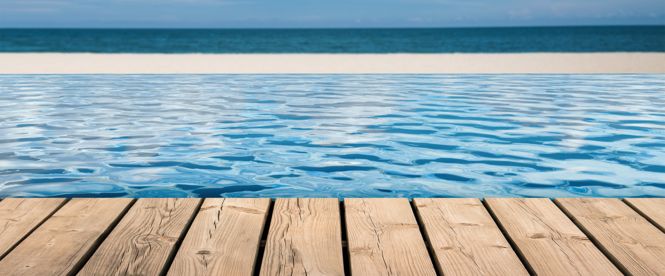WHAT IS CHLORINE?
In its original state, chlorine is a greenish-yellow gas characterised by a strong and pungent odor. Chlorine gas is very toxic, and has resulted in accidents in swimming pools. The toxin is cheap to produce and is ideal for water disinfection. The introduction of chlorine in tap water or pool water is called chlorination. Toxic or carcinogenic substances can arise from the reactions with components of the water. Water suppliers tend to switch to using the less harmful chlorine dioxide to disinfect water as it is critical to the process of treating water.

HOW MUCH CHLORINE IS IN OUR DRINKING WATER?
This varies by country, an example is that in the UK, the limits on chlorine in tap water are set at 5mg of chlorine per litre, whereby in Germany the limit is 0.3 milligrams of chlorine per litre. Water companies do not use the disinfectant all the time. As a rule, suppliers use chlorine to eliminate excessive germ counts, like E. coli bacteria. In the event of heavy rain or flooding, soil loses its filter function and germs enter the groundwater. How much chlorine is present in drinking water can only be found out by your water supplier, even without the typical chlorine smell, the substance can be present in low concentrations.

IS CHLORINE DANGEROUS IN DRINKING WATER?
Experts believe that chlorine in drinking water has no negative consequences for the human body. This applies at least to short-term use within the permitted limits. However, it is believed that undesirable toxins form when using the disinfectant. Therefore, pregnant women, as well as babies and infants should refrain from tap water as a precaution if the water supplier has announced and carried out a chlorine treatment. Scientists from the University of Birmingham analysed data from more than 40,000 children whose mothers had consumed chlorinated water during pregnancy. They were able to demonstrate that chlorine in tap water increases the risk of malformations such as lip-jaw-palate crevices, heart defects and brain damage.
¹Source: CSN Blog
WHAT DOES CHLORINE DO IN THE HUMAN BODY?
Chlorine in drinking water is not healthy for the body. Although the levels in drinking water in the permitted dosage is harmless, this said the disinfectant does react with other components of the water and tri-halogen methanes are produced. This group of substances also includes tri-chloromethane, which is known under the name chloroform and it has been suspected of causing cancer. Chlorine in drinking water inevitably produces chemical products that can have health affects. There are hundreds of chlorine compounds suspected of causing cancer, altering the genetic material or having a hormone-like effect. Therefore, it is generally recommended to avoid chlorine in tap water. If your water supply uses chlorine in tap water, switch to bottled water, or use a water filter such as the LUQEL Water Station.

LUQEL WATER STATION
The innovative LUQEL Water Station offers a high-quality, safe solution: thanks to the newly developed HYDRONAR technology, it can mineralise purest, filtered water with valuable mineral ions.

